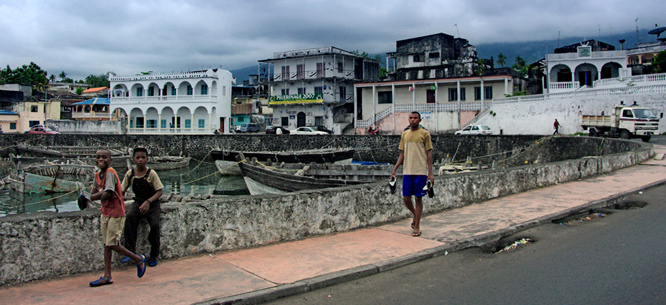A Suitcase Full of Passports
Everybody knows about Davos men and the global elite, and of course borders exist a lot more for the poor than they do for the rich. The rich figured out how to benefit from this system, and this is why it exists.
Booked: A Suitcase Full of Passports
Timothy Shenk ▪ November 19, 2015
Timothy Shenk: One of the statistics in this book that blew my mind is that, by some estimates, there are upwards of 10 million people who are stateless in the world today.* How did that happen?
Atossa Araxia Abrahamian: This statistic is from one of the UN agencies. It’s really hard to get an exact number for obvious reasons. These people are not documented, so governments don’t really have a good grip on how many there are and where they are. It happened in many different ways. Let’s start with the Persian-Gulf countries, because those are the ones I talk about the most in The Cosmopolites. When we talk about the Gulf states we have to remember that they are quite new—they were formed in the past fifty, sixty years at the earliest. These borders were not there before, and many of these countries were British protectorates. When the borders were drawn and these states were formalized as nation-states, a lot of people didn’t sign up to register as citizens early on. Many populations in that region were nomadic, and they thought, “Why should I sign up? This is where I’m from.” But as these states‘ bureaucracies grew, it became more and more important for people to be documented. Many of those people—called the Bidoon in this region, which means “without” in Arabic—have tried to sign up since, but the Gulf States are not always so accommodating. It varies by country and it varies by person. There is a wide perception that the resistance is a form of racism or tribalism, and of these governments being really stingy. When you are an Emirati citizen, you have a house provided for you, you get a stipend, you get cash when you get married. They make Sweden look stingy. But these benefits are paid for with the oil money, and you can hardly call it a social democracy.
Shenk: A social plutocracy?
Abrahamian: Right. And the benefits are largely distributed among a very, very small group of people, who are mostly related to each other. So you can see why it would not be in the state’s interest to include more people in this group.
Much more here:
https://www.dissentmagazine.org/blog/booked-atossa-abrahamian-cosmopolites-global-citizen-comoros-passports

